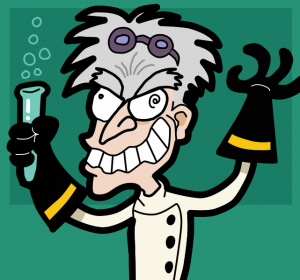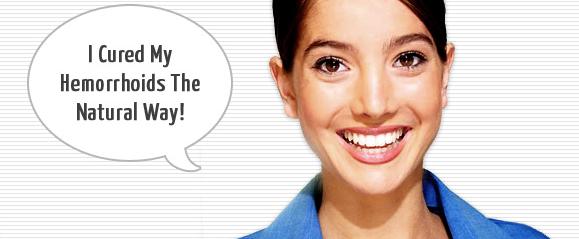
I may be a veterinarian, but first and foremost, I am a scientist. Since my first day of high school, when Mr. Palanacki exploded a balloon filled with hydrogen and oxygen and scared the bejeezus out of us, I was hooked. I chose veterinary medicine as a career because it enabled me to combine my love of animals with my desire to understand how the world works. And like any good scientist, I eventually learned that we know a heck of a lot less about how the world works than I thought we did.
We spent a great deal of time in vet school learning to think critically. Part of thinking critically (and being a scientist in general) involves being a skeptic. Science demands proof, and rigid proof at that. A good scientist will be perfectly willing to discard a well known and loved ‘belief’ if the evidence proves these beliefs to be false. New explanations and models are hypothesized in order to come up with an explanation of new experimental data, and then these explanations are tested. And so the cycle continues, until we get closer and closer to ‘the truth’.
As a result of this process, you are now able to protect your children (and pets) against previously deadly diseases, fly to the other side of the world in less than a day, and play Angry Birds on your new IPad mini.
Now, science is all well and good when you’re trying to predict the motion of Saturn’s moons or predict what will happen when you add pure sodium to water (Hint: Don’t try this at home). Physics and chemistry are pretty exacting and specific. But when it comes to biology, things get can get a bit messy.
The body is such a complex collection of ingredients and metabolic pathways, that we can never truly predict how it’s going to react in any specific circumstance. The most we can do, is speak in generalities. We may know that a medicine will help most people (or pets), but you can be darned sure that it won’t help everyone.
Maybe even more importantly, giving a substance (or performing a treatment) with NO medicinal value will NOT help most people, but there’s gonna be a few people that improve after they get it. Why is that? Who knows. Maybe they would have gotten better anyway. Maybe their belief in the power of the ‘medicine’ caused changes in their brain, which led to changes in their body, which helped to make them better. Maybe something else that we don’t even understand is going on.
Enter the placebo effect.
Placebo is the only substance in the world which is effective against every single disease out there. Seriously. Don’t believe me? Well go ahead… name any disease. Go on… Name one.
Now take a whole bunch of people with that disease and give them all a placebo (but tell them that it’s real medicine that will fix them). Guaranteed, that with enough people, there will be a certain number of individuals that will actually get better. Sometimes it’s a big number, and sometimes it’s a small number. It just depends on the disease. Did the placebo CAUSE the disease to get better? Well, that’s the million dollar question…
So if a sugar pill can cause some sick people to feel better, then how do we know whether or not a medicine or treatment actually has a real effect? That’s where science comes in.
Epidemiology is the branch of biology and medicine that studies diseases in groups of people. And epidemiology has given us the best tool to work out this placebo problem: the double-blind, placebo controlled study.
In today’s internet age, antecdotal evidence is everywhere. It is unavoidable. Any twit with half a brain can start a blog or create a webpage that tells the world how putting crystals in his ear cured his hemorrhoids. And maybe this person is sincere. Maybe his hemorrhoids DID get better after he stuck a crystal in his ear. But that doesn’t mean the crystals CAUSED it to happen.
Human beings, being the frail creatures that we are, love to believe things. So now, hundreds (or thousands) of people searching Google for hemorrhoid advice will come across this webpage, extolling the virtues of ear-crystalling for relieving that itch in their nether-regions And some will try it. And some will just happen to get better. And some of THESE will make their own blogs, or comment on message boards, or tell all their friends and families. And before you know it, Oprah is doing a show on a new miracle cure for hemorrhoids.
And a little word of warning: if you ever see one of those Oprah guests in real life, DON’T YOU DARE TELL THEM THAT EAR CRYSTALLING DOESN’T DO ANYTHING!!!! They know the truth. They experienced it. And anyone that disagrees with them is just part of some western-medicine-big-pharmacy-hemorrhoid-cream-selling conspiracy. This, is how quackery is born.
I hate quackery. It drives me nuts. I want to be darned sure that if I recommend a treatment/medication to one of my patients, that there is good scientific evidence that my recommendation is going to: 1) do not harm, and 2) actually work. Let me tell you though, it is an uphill battle. People that believe in quackery, like those guests on Oprah, often believe it with the fervor that one would believe in a religion. But the battle goes on…
In part two of this rant, we’ll delve more into this double-blind placebo-controlled study stuff, and I’ll tell you why it’s so important. Until then, here’s a video of cat licking a vaccuum cleaner.







This is one of those things I feel everyday with unsubstantiated claims. My favorites are when people claim HIV has a simple cure, yet they’ve never taken an immunology course, virology course, or read anything peer reviewed on the current state of research for that field, yet what they read on the internet is conclusive! Thanks for writing, hopefully people realize people working countless hours in a lab trying to cure countless ailments and diseases aren’t part of a conspiracy, they are actually helping… phew rant over.